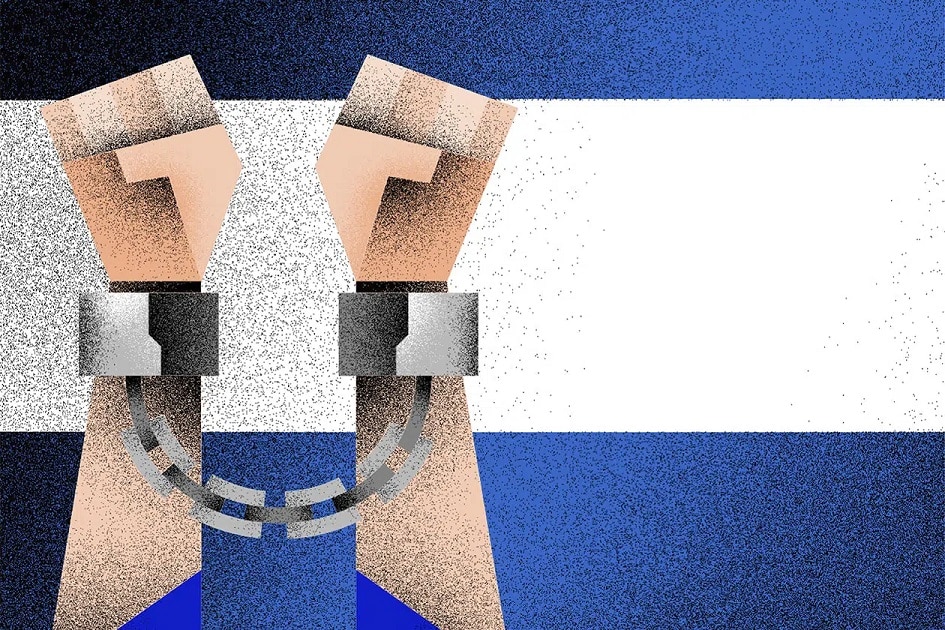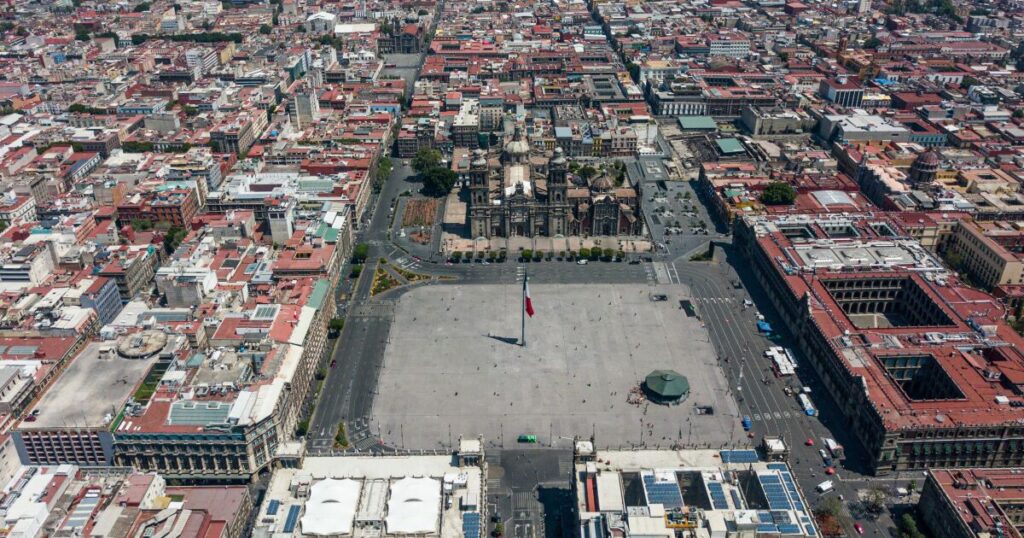The formation of the Interinstitutional Commission, recommended in a report of the commissions of Justice and Legal Affairs and Peace, Defense, Governance and Human Rights of the National Assembly, will have as its objective “to formulate and create a policy of criminal persecution of the State against opponents” of the Ortega-Murillo regime, affirms the criminal lawyer Boanerges Fornos, former departmental prosecutor of the Public Ministry of Nicaragua and representative of the group Acción Penal.
On May 4, the report prepared by both commissions was approved by the National Assembly, controlled by deputies allied to the Ortega-Murillo regime. The document first reached the Presidency of Parliament last April 27 and in this it was recommended to increase the sentences against future political prisoners of Nicaragua who were tried for the crimes of “treason against the fatherland”, confiscate assets through the figure “extinction of domain” and create an Inter-institutional Commission that “carry out said job.”
“It means that this commission is going to determine: one, the legal reforms that are necessary to increase the penalty for the crime of undermining national integrity and, in addition, it may consider that the penalties for other crimes should be increased. Also, there is the possibility that they will create special or specialized courts to see only this type of crime, create specialized units of the Police and, in addition to that, link and force all the institutions of the justice system, of the State, including private, to provide information to strengthen the cases within the framework of this State persecution policy,” Fornos said in an interview with the program Tonight.
The jurist warned that the report also includes a clear threat of criminalization against members of the Catholic Church “not only with the impairment, it may be that they expand it further, it is a possibility.”
Religious leaders have responded to the threats of the Ortega regime through their Sunday homilies, calling on the faithful and delegates of the floor to “not be afraid” and “not be intimidated”, because “the Church may seem weak, but it is not. it is”.
Regime will use “extinction of domain” to justify confiscations
Fornos said that another of the measures proposed in the report is the use of the figure of domain extinction, which seeks to justify the confiscation, despite the fact that it is prohibited by the Political Constitution of Nicaragua.
He explained that confiscation occurs when “the State appropriates property without any justification; they did not sell it, they did not give it to them, there is no confiscation, they simply arrive and seize it.”
The expert recalled that in the case of non-profit organizations, canceled at the end of 2018, whose properties were taken away without legal argument and were transferred -in 2020- to the Ministry of Health (Minsa) they are a clear case. of confiscation. Some of the NGOs affected were the Nicaraguan Center for Human Rights (Cenidh), the Popol Nah Foundation and the Center for Information and Health Advisory Services (Cisas).
He stressed that using asset forfeiture as “an accessory penalty is totally wrong, since it is totally independent and autonomous and aims to combat and prosecute those assets that are used or obtained with illegal funds.”
In addition, he stressed that due to the use that they want to give to the figure, what they seek is to remove the properties when they have been delivered by the State, even if they have not been used by the accused to allegedly commit the crime for which he was convicted or obtained with illicit funds.
Fornos explained that in the country there are two legal figures by which a person can lose control over their property; expropriation and confiscation, but these must meet certain requirements established by law.
He also pointed out that the reform to the Code of Criminal Procedure that he intends to carry out contemplates forcing the people interviewed by the Public Ministry, during an “investigation” process, to keep secret or not give statements to the media, emphasizing that it is a measure that legally can be applied, but that in The context that Nicaragua is experiencing is seen as “a tool of political persecution, to intimidate the person who is sitting down to testify, because if they say something they can be accused of disobedience or contempt of authority.”
Action of the justice system is “illegal”
The law expert pointed out that the justice system in Nicaragua, especially in the day of political trials that has been promoted between 2018 and the beginning of 2022, has had a “totally illegal” action, since “technical criteria have not been met, but political requests.
“They have violated each one of the rights and guarantees that every Nicaraguan citizen has and, particularly, the people who have been tried. They have not been guaranteed the right to defense, to free and private communication with their defense, to have access to evidence and to have their trial conducted in a place set up for it,” he indicated.
Ortega justice has sentenced more than 50 of the 68 citizens imprisoned between May and November 2021. Among those convicted are academics, activists, social and political leaders, human rights defenders, peasants and businessmen, who have already received sentences of between seven and thirteen years in prison, but they are still not transferred to a Penitentiary System.
Boanerges pointed out that the Nicaraguan Penal Code, in article 148, “establishes that every person who is subject to a criminal proceeding, once the precautionary measure of preventive detention has been imposed, must, in the second hearing, have been transferred to the corresponding Penitentiary System.
He stressed that these people must be “in different places than those serving sentences, because these people are being subject to criminal proceedings, even when they have been found guilty, since their sentences are not final.”
“In none of the cases of political prisoners is there a final sentence, so they should be in the Penitentiary Systems in humane conditions, in healthy conditions, with access to medicines, and totally separated from those who are serving sentences by final sentence,” he added. .
The lawyer stated that although the regime’s courts of appeals have accepted at least seven appeals in cases of political prisoners from El Chipote, although a reversal of sentence should not be ruled out, “the records of the other political prisoners have indicated to us that the magistrates of the courts of appeals do not give appeals even and when the defense attorneys, as in the case of these political prisoners, have the legal reason, always, in the great majority, they do not give rise to it”.
The lawyer recalled that the defenses of prisoners of conscience or family members, after exhausting domestic remedies, can “turn to international bodies, either the Inter-American Human Rights System or the United Nations International System.” Although, andHe emphasized that in the case of the Inter-American System, the regime can “argue that it no longer belongs to the Organization of American States, even though its obligations end years after it was announced.”
The expert assured that the judges, who serve as the executing arm of the regime’s orders, have committed a large number of violations of the Penal Code, among these crimes such as prevarication, and they may also be, in the future, judged and face responsibilities. civil and criminal.
He stressed that the judges, even if they are sentenced with sanctions at the international level, as some have publicly requested MEPs“does not mean that civil or criminal cases cannot be opened later.”
The Ortega-Murillo regime keeps more than 180 people locked up in the different prisons in Nicaragua. National and international defenders have demanded the immediate release of each of them and warned of the serious human rights violations they suffer daily.
















